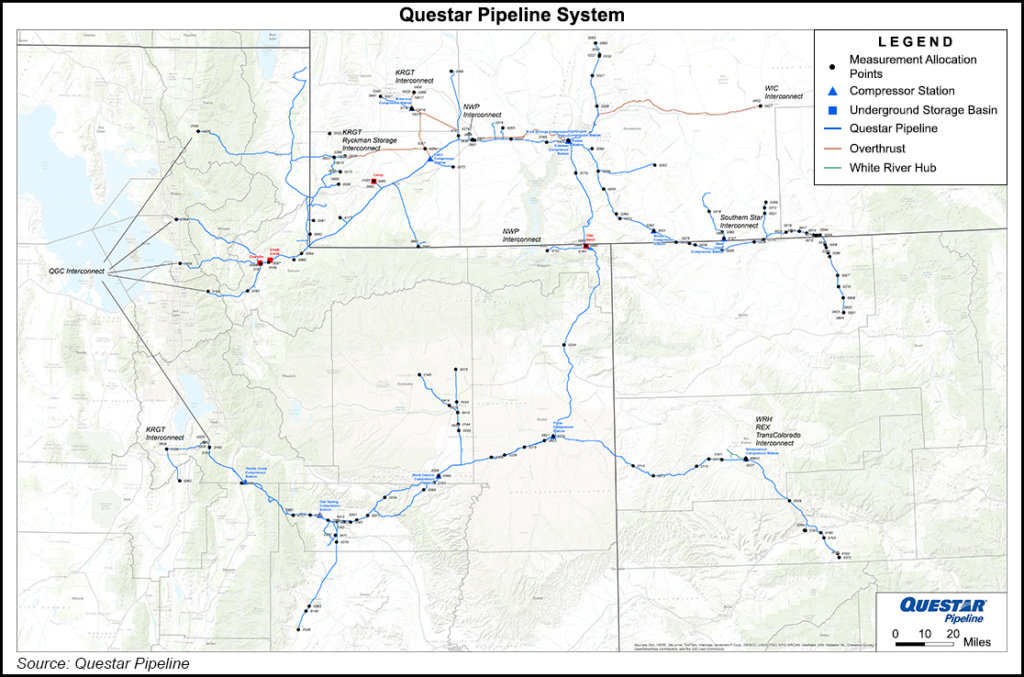Regulatory | Infrastructure | NGI All News Access
Questar Wins FERC Approval to Streamline Reserve Capacity Procedures
FERC has approved a request from Questar Pipeline Co. to use streamlined procedures that would allow the company to reserve capacity for expansion projects and to sell the capacity on an interim basis without the right of first refusal (ROFR) by shippers.

On Monday, the Federal Energy Regulatory Commission said the Salt Lake City-based company could revise its tariff to include language that would allow Questar to reserve capacity for expansion projects subject to FERC’s prior notice regulations for construction projects performed under the company’s blanket certificate authority. The changes were effective Tuesday.
According to filings in the case, Questar told FERC last July that the changes would help it “better utilize existing unsubscribed capacity in light of the heavy competition in the Mountain West markets” [RP15-1142]. The company said it recently had to file certificate applications under Section 7(c) of the Natural Gas Act for two small expansion projects.
In August, shippers BP Energy Co., Shell Energy North America (US) LP and Cross Timbers Energy Services Inc. said they objected to the changes. They argued that Questar had failed to address how FERC could ensure that the streamlined process would not be used to unnecessarily withhold capacity from the market. The shippers cited two cases where the Commission found that very scenario had occurred.
The shippers had also argued that Questar’s complaints about having to file under Section 7(c) were an inadequate reason to make the switch to the company’s blanket certificate authority.
But FERC disagreed, saying it “has never adopted a blanket prohibition on the reservation of capacity for prior notice projects.” The Commission added that the two previous cases cited by the shippers simply amounted to the pipelines in question not justifying their proposals.
“Questar has adequately justified its proposal…[and] because the prior notice application is filed when the project is ready to be constructed, use of the prior notice application saves time and resources and ensures that capacity is not unduly withheld from the market.”
FERC said before Questar reserves capacity — either through the prior notice or Section 7(c) procedures — the company would be required to “post all available capacity for bidding and award, post notice to the public that the capacity was being reserved and hold an open season prior to the project commencing.” The Commission said a 60-day public comment period on the matter would also provide “additional transparency” and protect shippers.
A fourth shipper, Anadarko Energy Services Co., had also filed a motion to intervene in the case last month.
According to its website, Questar owns and operates more than 2,500 miles of pipeline, with a total capacity of 2.53 million Dth/d, and underground storage facilities in Colorado, Utah and Wyoming. Its system is located near the Greater Green River, Uinta and Piceance basins.
© 2024 Natural Gas Intelligence. All rights reserved.
ISSN © 1532-1231 | ISSN © 2577-9877 |
